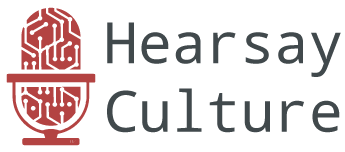I am pleased to post two more shows for the fall quarter. The first, Show 147, August 17 is my interview with Prof. Marcus Boon of York University, discussing In Praise of Copying. Marcus has written a unique contribution to our notions of what it means to copy and imitate by examining copyright law through the lens of Buddhism. A new focus on Hearsay Culture, our discussion examined what Buddhist teachings might tell us about copying as a human behavior and, more broadly, whether western conceptions of intellectual property mesh with Buddhist beliefs. I learned a lot both from the book and our discussion. [Apologies for some audio issues in this recording].
The second show, Show 148, August 24, is my interview with Prof. Ann Bartow of Pace University School of Law, author of the forthcoming article Copyright Law and the Commoditization of Sex. Ann examines how copyright law potentially incentivizes the creation of pornography that is illegal and/or harmful to the performers. It may be a surprise to many that copyright law does not carve an exception for such works; Ann proposes that such exceptions should be considered and outlines a system for such considerations. Ann is a prolific scholar and exciting thinker and I greatly enjoyed the discussion.
Podcast: Play in new window | Download | Embed
Subscribe: RSS
